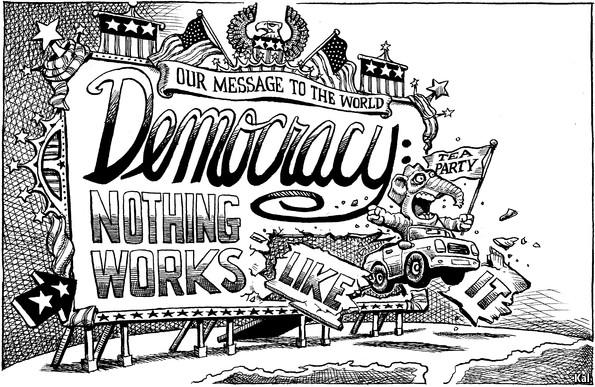Indeed, that is the intent of the Hagel recall. Of course,
no military personnel gets sent home in the event of a shutdown; the federal
government would have to literally run out of money before it would stand down troops
or shut down weapons systems and open itself up to threat as never before. While
the DoD is not at the bottom of the shutdown pecking order (that honor goes to
the Department of Veterans Affairs, who have furloughed only 4% of their 332,025
employees), neither are they at the top – nearly every single one of NASA’s
18,134 employees got sent home (excepting, of course, the ones currently in
outer space).
In addition, the Department of Homeland Security is also
extremely well-protected from the shutdown-induced furloughs, as nearly 9 out
of every 10 of the 231,117 DHS employees stay on the job. So America’s ability
to project its power and defend the homeland remains more or less intact,
unbuffetted by the winds of discord currently howling through the capital. If we
measure national security in terms of planes, guns, tanks, and troops, the
government shutdown seems hardly to have made a dent.
Unfortunately, “national security” is a concept, not a
concrete measure. America’s national security is tied to its position as the
hegemon of the international political system. The collapse of the Soviet Union
signaled the end of the Cold War in 1991 and heralded a switch from a bipolar
system to unipolar one in which democracy twinned with capitalism were declared
the unanimous political and economic philosophical victors over authoritarian
systems and planned economies.
The longer the government shutdown continues, the less
secure the American position becomes. The less trustworthy the American
political system seems, the less viable democracy as a concept appears. The less
certain the rest of the world is about America’s ability to govern itself, the
less willing they will be to participate in the economic system of which the
American economy is the linchpin. Granted, the global marketplace seems to have
anticipated the shutdown, and both American and European markets finished up on
Friday while the Asian markets suffered only minor losses. But the longer the
shutdown continues, the more uncertain the marketplace will become, especially
if the Congress refuses to increase the debt ceiling on October 17th,
an event most analysts suggest will trigger a severe global economic downturn.
Such a downturn would only increase the amount of
uncertainty about the future of the international system. This uncertainty
would certainly breed instability, as more and more people outside the US would
question the soundness of democracy as a political system if it can be ground
to a halt by a relatively small minority of extremists, a group of people who
would think nothing of endangering the global financial system to make a
political point. This seeming inability to govern itself or to take the
consequences of its actions on a global scale into account, combined with a
reluctance to act forcefully against a leader who commits acts of violence
against his own people in violation of international law in Syria, could reduce
the faith the rest of the world has in America’s ability to remain a hegemon, a
nation that can act both to enforce global norms and protect itself.
To put it more simply, the longer the government stays shut
down, the weaker America’s position in the world becomes, and greater the risk
to American national security.

1 comment:
The recent shut down has indeed created a negative impact to the country's economy.
Post a Comment